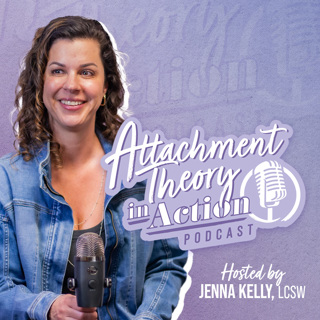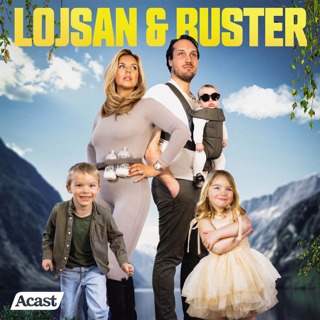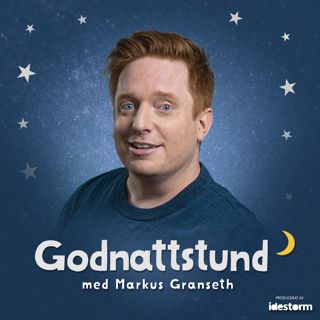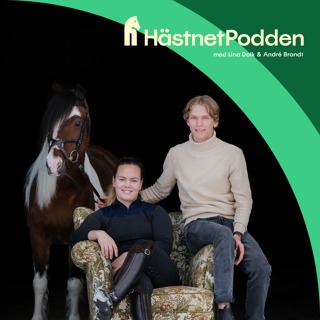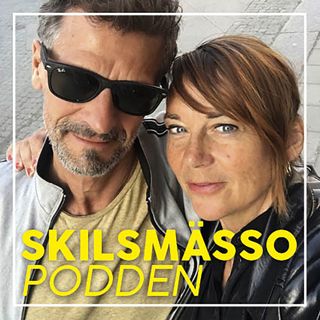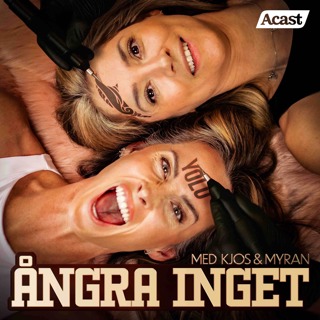
Rebecca Shahmoon-Shanok on Reflective Supervision and Attachment-Based Therapy
Welcome to Attachment Theory in Action! Our podcast is dedicated to therapists, social workers, counselors and psychologists who are working with clients from an attachment-based perspective. Interviews are conducted with individuals who are doing clinical work as well as leading attachment theory researchers. Your host, Karen Doyle Buckwalter will introduce you to Rebecca Shahmoon-Shanok, who will discuss reflective supervision and attachment-based therapy. Rebecca Shahmoon-Shanok, LCSW, PhD, is a clinician, teacher and author in the pregnancy and parenting through preschool fields; is among the developers of reflective supervision; of integrating mindfulness into the fields of early childhood mental health and care; of interweaving mental health services in community-based settings; and of training professionals across disciplines together since 1980. With degrees and experience as clinical psychologist, social worker and early childhood educator, and extensive experience in psychoanalysis, infant mental health, mindfulness, and in developmentally and/or traumatically challenged young children and their parents, Dr. Shahmoon-Shanok developed a model that integrates mental health consultation plus a range of successful mental health services within childcare and Head Start utilizing peer play psychotherapy for a variety of children with serious challenges. She is a CPP Trainer. After participating in Undoing Racism Workshops over a dozen years, she has participated in the Harris Foundation’s Tenets Workgroup since 2012. Founding CEO/Academic Director of Collaborations for Growth and Senior Research Associate for Relationships for Growth & Learning, Center for Attachment Research, New School for Social Research, she served as board member of Zero to Three for thirty-six years and is the founder of the New York Zero-to-Three Network, continuing on its board. Dr. Shahmoon-Shanok currently gives workshops and short courses on reflective supervision, and co-chairs the Reflective Supervision Collaborative which is becoming the first long-term training for reflective supervisors and trainers across the country and an online clearing house of RS materials.
19 Feb 201932min

Rebecca S. Molitor on Facilitating Prenatal Bonding
Welcome to Attachment Theory in Action! Our podcast is dedicated to therapists, social workers, counselors and psychologists who are working with clients from an attachment-based perspective. Interviews are conducted with individuals who are doing clinical work as well as leading attachment theory researchers. Your host, Karen Doyle Buckwalter will introduce you to Rebecca S. Molitor, who will explore how to facilitate prenatal bonding. Rebecca Molitor considers herself fortunate to do every day what she is most passionate about...partnering with individuals and families to connect and reconnect with each other and themselves through gaining understanding, acceptance and creating changes in a compassionate manner. After working as a therapist in child social services for over a decade, Rebecca branched into private practice specializing in work with children from birth into adulthood, with an emphasis on attachment, trauma, mindfulness and self-acceptance. She has been involved in Illinois Early Intervention since 2000 as a Developmental Therapist, Psychological Service Provider and Evaluator, and currently as the Social Emotional Consultant for CFC 21 and 22. Rebecca has presented on a variety of topics related to prenatal attachment, development, children, working with families, and provider self-nurturance throughout Illinois to schools, community groups and agencies, home visiting programs and conferences. Most recently, Rebecca has ventured into the prenatal world, becoming one of the first certified Prenatal Bonding (BA) Facilitators and trainer-in-training for the United States.
12 Feb 201936min

George Downing on the Use of Video Intervention Therapy to Strengthen Mentalization
Welcome to Attachment Theory in Action! Our podcast is dedicated to therapists, social workers, counselors and psychologists who are working with clients from an attachment-based perspective. Interviews are conducted with individuals who are doing clinical work as well as leading attachment theory researchers. Your host, Karen Doyle Buckwalter will introduce you to George Downing, who will discuss how the use of Video Intervention Therapy can strengthen mentalization. George Downing, Ph. D., an American psychologist, lives in Paris where he is on the teaching faculties of Salpétrière Hospital and Paris University VIII. He also teaches clinical seminars at the universities of Munich, Heidelberg, Padua, and the New School for Social Research, New York. He is the author of numerous articles on video intervention, on child development research, and on other aspects of psychotherapy. For more information on George Downing and Video Intervention Therapy, visit http://www.vit-downing.com/
5 Feb 201938min

Deborah Gray on How Grief and Loss Impact Attachment
Welcome to Attachment Theory in Action! Our podcast is dedicated to therapists, social workers, counselors and psychologists who are working with clients from an attachment-based perspective. Interviews are conducted with individuals who are doing clinical work as well as leading attachment theory researchers. Your host, Karen Doyle Buckwalter will introduce you to Deborah Gray, who will discuss how grief and loss impact attachment. As a bonus for our listeners, Deborah has made available a downloadable handout to supplement this week's episode. Be sure to check it out at the link below! https://www.theknowledgecenteratchaddock.com/grief-and-loss Deborah Gray, MPA, LICSW specializes in the attachment, grief, and trauma issues of children in her practice, Nurturing Attachments. Her passion is to help families develop close, satisfying relationships In 2015 Deborah received a lifetime achievement award from the International ATTACh organization for her contributions to the attachment field. Deborah is core faculty for the Attachment/Trauma-Focused Therapy Program and Portland State University Foster and Adoption Therapy Program. She was the Henry Meier Practitioner in Residence at the University of WA School of Social Work. Deborah Gray is a popular presenter due to her practical and positive approaches. She continues to work in a clinical practice with parents and children, who help to teach her new approaches and techniques every day. Deborah is the author of the books: Promoting Healthy Attachments: Hands-on Techniques to Use with Your Clients, Attaching in Adoption: Practical Tools for Today’s Parents, Nurturing Adoptions: Creating Resilience after Neglect and Trauma, Attaching with Love, Hugs, and Joy, and co-author of Games and Activities for Attaching with Your Child. Deborah provides additional information at Nurturingattachments.com
29 Jan 201932min

Susan Hart on Attunement and Brain Development: Why Attachment Matters, Part Two
Welcome to Attachment Theory in Action! Our podcast is dedicated to therapists, social workers, counselors and psychologists who are working with clients from an attachment-based perspective. Interviews are conducted with individuals who are doing clinical work as well as leading attachment theory researchers. Your host, Karen Doyle Buckwalter will introduce you to Dr. Susan Hart, who will discuss the role of attachment in attunement and brain development. This is the second of a two-part interview with Dr. Hart, so be sure to check out last week's episode if you missed out on part one! Susan Hart, Ph.D. is a psychologist, specialist and supervisor in psychotherapy and child psychology. With a background in child psychiatry, family and adult therapy, Susan is now self-employed. She is the originator of the neuroaffective development theory, which is based on modern brain research, and which she began to develop about 20 years ago by connecting neuroscience with developmental psychology. Her overriding goal is to develop assessment methods aimed at providing the right intervention method for individual child or family by identifying and mapping their zone of proximal development. She is currently developing ways to translate the neuroaffective concept into practice through her extensive lecture and workshop activity, publications, manuals and the present doctoral dissertation, which is based on research into newly developed assessment methods within the neuroaffective framework. She is the author, co-author and editor of 14 books on trauma, dissociation and neuroaffective developmental psychology and psychotherapy. Four of her books have been translated and published in English. Together with colleagues she has also developed two developmental programmes, one for children’s groups and one for parent’s groups.
22 Jan 201925min

Susan Hart on Attunement and Brain Development: Why Attachment Matters, Part One
Welcome to Attachment Theory in Action! Our podcast is dedicated to therapists, social workers, counselors and psychologists who are working with clients from an attachment-based perspective. Interviews are conducted with individuals who are doing clinical work as well as leading attachment theory researchers. Your host, Karen Doyle Buckwalter will introduce you to Dr. Susan Hart, who will discuss the role of attachment in attunement and brain development. Susan Hart, Ph.D. is a psychologist, specialist and supervisor in psychotherapy and child psychology. With a background in child psychiatry, family and adult therapy, Susan is now self-employed. She is the originator of the neuroaffective development theory, which is based on modern brain research, and which she began to develop about 20 years ago by connecting neuroscience with developmental psychology. Her overriding goal is to develop assessment methods aimed at providing the right intervention method for individual child or family by identifying and mapping their zone of proximal development. She is currently developing ways to translate the neuroaffective concept into practice through her extensive lecture and workshop activity, publications, manuals and the present doctoral dissertation, which is based on research into newly developed assessment methods within the neuroaffective framework. She is the author, co-author and editor of 14 books on trauma, dissociation and neuroaffective developmental psychology and psychotherapy. Four of her books have been translated and published in English. Together with colleagues she has also developed two developmental programmes, one for children’s groups and one for parent’s groups.
15 Jan 201919min

Robyn Gobbel on the Use of Rhythm and Movement in Therapy
Welcome to Attachment Theory in Action! Our podcast is dedicated to therapists, social workers, counselors and psychologists who are working with clients from an attachment-based perspective. Interviews are conducted with individuals who are doing clinical work as well as leading attachment theory researchers. Your host, Karen Doyle Buckwalter will introduce you to Robyn Gobbel, who will speak on the use of rhythm and movement in therapy. Robyn Gobbel, LCSW, RPT-S is a psychotherapist specializing in adoption, attachment, and trauma. She is the founder of the Central Texas Attachment & Trauma Center. Robyn works with young children and their families, as well as adults. She is a speaker, trainer, and writer whose greatest superpower is being with people in a way that makes them feel seen, gotten, heard, and deeply cared for.
8 Jan 201934min

Dr. Casey Call Explores TBRI
Welcome to Attachment Theory in Action! Our podcast is dedicated to therapists, social workers, counselors and psychologists who are working with clients from an attachment-based perspective. Interviews are conducted with individuals who are doing clinical work as well as leading attachment theory researchers. Your host, Karen Doyle Buckwalter will introduce you to Dr. Casey Call, who will explore her experiences in TBRI. Dr. Casey Call is the Assistant Director at the Karyn Purvis Institute of Child Development (KP ICD). She serves in various capacities at the Purvis Institute including research, training, and outreach connected to Trust-Based Relational Intervention® (TBRI®). Casey also teaches, advises, and mentors TCU students in the Child Development undergraduate and graduate programs. Casey is a Licensed Professional Counselor Supervisor and is a registered Circle of Security® parent educator. She has also received training in Theraplay® Level One and in scoring the Strange Situation Protocol. Casey holds Masters degrees in Elementary Education, Counseling, and Developmental Psychology from TCU, as well as a Ph.D in Developmental Psychology. Note: This episode was originally broadcast on April 18, 2018. Happy Holidays!
1 Jan 201927min
